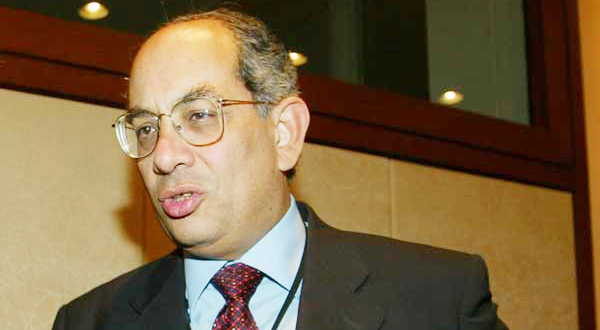 CAIRO: An Egyptian court convicted former finance minister Youssef Boutros-Ghali in absentia on Saturday and sentenced him to 30 years in prison for profiteering and abusing state and private assets, a court source said.
CAIRO: An Egyptian court convicted former finance minister Youssef Boutros-Ghali in absentia on Saturday and sentenced him to 30 years in prison for profiteering and abusing state and private assets, a court source said.
Boutros-Ghali, widely viewed in Egypt as a public face of a government that enriched the wealthy at the expense of the poor, quit his post in late January then fled abroad, only days after the eruption of the mass uprising that later ousted Hosni Mubarak.
Boutros-Ghali also resigned in early February as head of the International Monetary Fund's main policy steering panel. Egyptian media reports have said Boutros-Ghali is in the Lebanese capital Beirut.
Many investors and businessmen highly regarded Boutros-Ghali for spearheading free-market reforms that helped boost Egypt's economic growth to around an annual 7 percent in the three years before the 2008 global economic crisis.
Soon after his appointment as finance minister in June 2004 Boutros-Ghali slashed import tariffs, reduced income taxes to a flat 20 percent and helped overhaul the banking system.
The Cairo court ruled that Boutros-Ghali took private vehicles held at the customs authority and allowed others to use them without the permission of their owners.
He took six of the vehicles, including three Mercedes and a BMW, for his private use and delivered another 96 to other parties, the court said. The vehicles had a total value of LE 35.8 million ($6 million).
The court also ruled that he used a finance ministry printing center to produce a large amount of materials for his personal election campaign for a seat in parliament in 2010, the court source said.
He transferred ministry computers and printers for use at his campaign headquarters for more than six months.
The court sentenced Boutros-Ghali to 15 years in jail with hard labor in the vehicles case and another 15 years in the printers case. It also ordered him to return the LE 35.8 million as the value of the vehicles and to pay a similar amount as a fine, the court source said.
In 2008, he took over the chair of the IMF's International Monetary and Financial Committee (IMFC), comprised of finance ministers and central bankers from 24 countries and the main advisory body to the fund's member countries.



